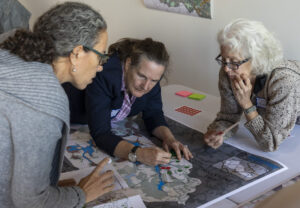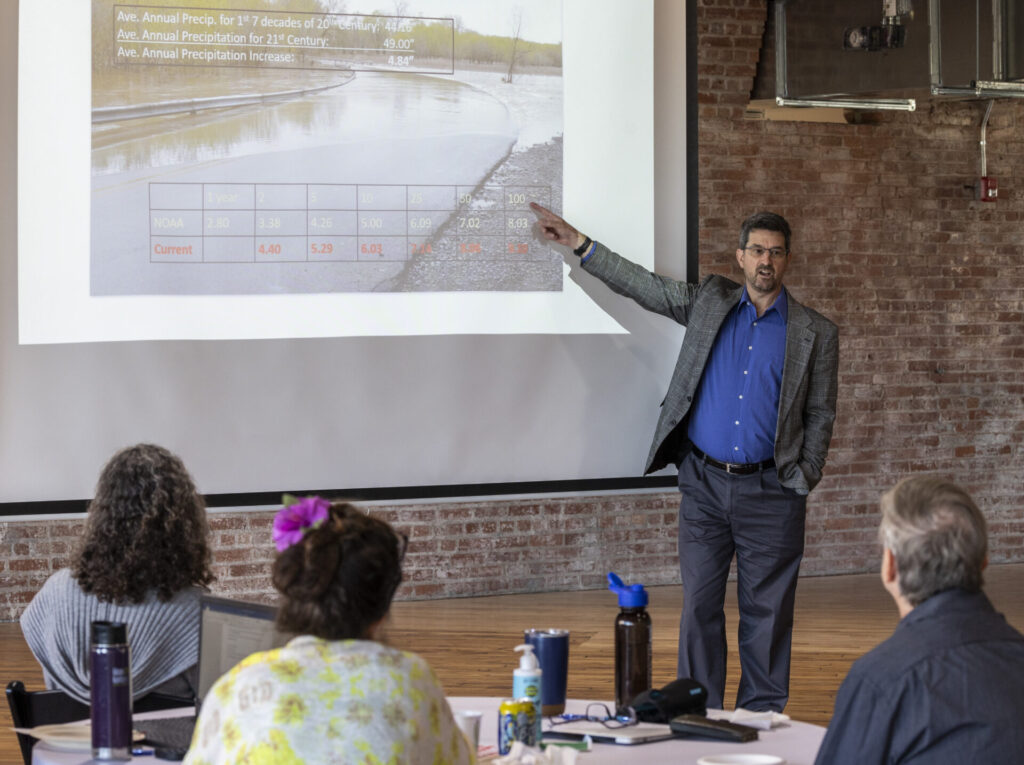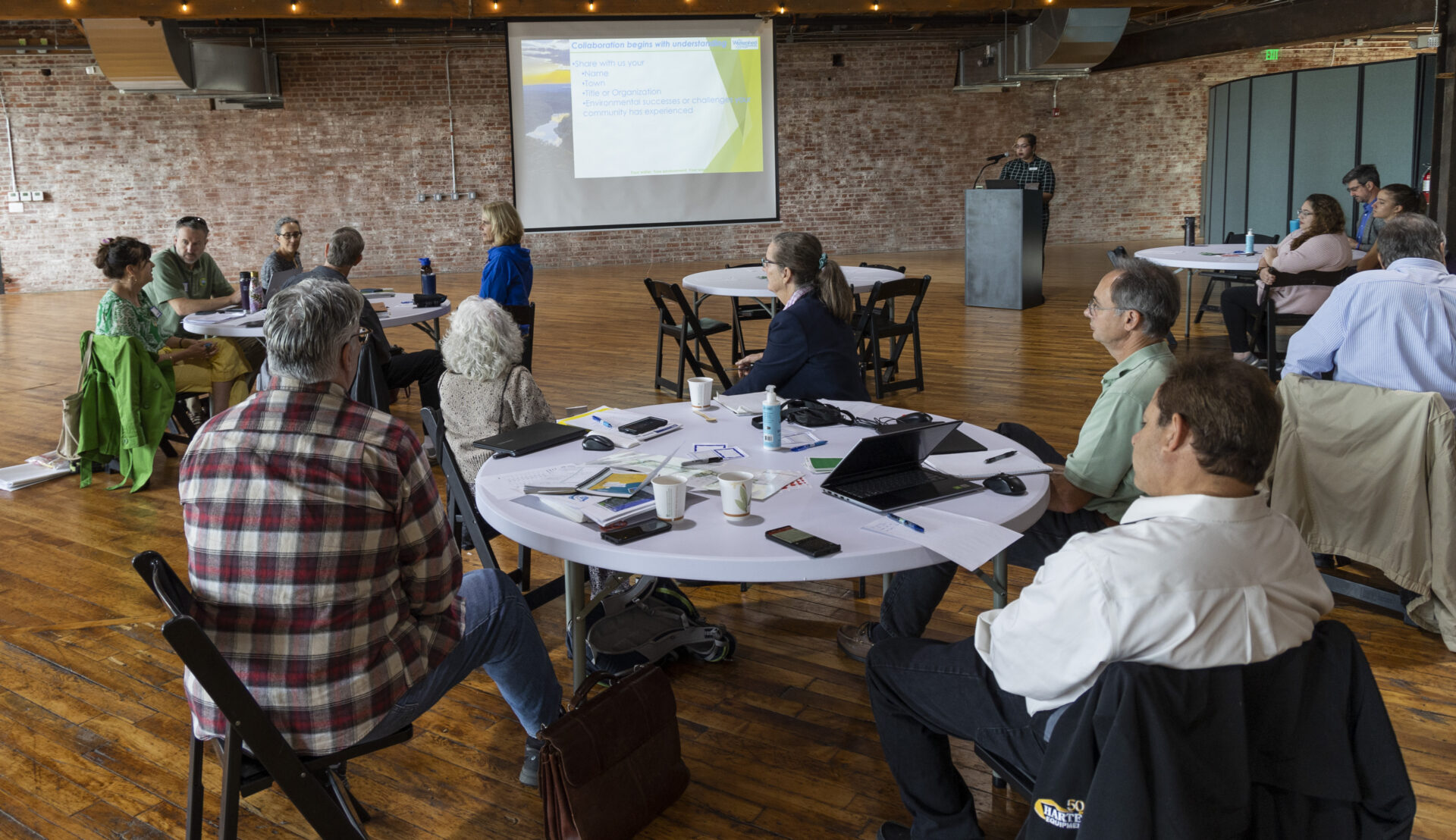 Thanks to ongoing support of the William Penn Foundation, The Watershed Institute will continue to collaborate with a coalition of organizations focused on strengthening state and local policies to address polluted stormwater runoff in New Jersey through advocacy, outreach, and technical assistance.
Thanks to ongoing support of the William Penn Foundation, The Watershed Institute will continue to collaborate with a coalition of organizations focused on strengthening state and local policies to address polluted stormwater runoff in New Jersey through advocacy, outreach, and technical assistance.
The Watershed is working with the Association of New Jersey Environmental Commissions, American Littoral Society, Delaware Riverkeeper Network and the Pinelands Preservation Alliance. In addition to collaborating with its partners on statewide efforts, this recent renewal of a $321,000 two-year grant by The William Penn Foundation will allow the Watershed to keep working intensively with municipalities in the Assunpink and Stony Brook Watersheds.
Just as a watershed is defined by its streams, rivers, ponds, and lakes rather than political boundaries, the Watershed’s mission extends beyond arbitrary borders to encompass an entire region determined by the natural flow of water. Regional challenges caused by climate change and historic patterns of development are often best solved through the collaboration of all watershed towns.

Flooding is a significant challenge that requires the cooperation of local governments within watershed communities. The impacts of flooding accumulate from upstream to downstream in a watershed, and projects and policies implemented upstream can reduce polluted runoff and flooding downstream. Recognizing this, the Watershed has been facilitating communication between towns to address the accumulation of impacts downstream and instances of flooding in upstream hotspots.
Through the Stony Brook Watershed Towns initiative, led by Mike Pisauro, policy director at The Watershed Institute and the Assunpink Roundtable, led by Kendra McCoy, Delaware River advocate at The Watershed Institute, collaborative efforts are underway. These regional meetings in addition to another led by the Somerset County Planning Board for towns within Somerset County, give engineers and elected officials a chance to take a“big picture” view of how the actions of each community affect the others.
The Watershed has also joined forces with Andrew Lloyd, senior planner for Mercer County, to improve the accuracy of models depicting how water moves across the watershed using a geographic information system (GIS) model. Lloyd’s work is helping the town officials understand how water interacts with constructed land features and is enhancing the understanding of water dynamics within the watershed.
To further support the regional appr oach, Jessica Stochel, a GIS student at Rutgers University, joined the Watershed during the spring 2023 semester. Jessica’s task was to identify open spaces that could potentially be used to help prevent flooding in Stony Brook watershed communities. Using aerial imagery and stream corridor analysis, Jessica located properties within or adjacent to the Stony Brook and its tributaries. She then used the data to model various runoff reduction scenarios under conservation practices such as reforestation and stormwater management. Her findings were presented to Stony Brook watershed planners, engineers, and municipal staff, initiating a regional discussion on preserving open space and mitigating flooding.
oach, Jessica Stochel, a GIS student at Rutgers University, joined the Watershed during the spring 2023 semester. Jessica’s task was to identify open spaces that could potentially be used to help prevent flooding in Stony Brook watershed communities. Using aerial imagery and stream corridor analysis, Jessica located properties within or adjacent to the Stony Brook and its tributaries. She then used the data to model various runoff reduction scenarios under conservation practices such as reforestation and stormwater management. Her findings were presented to Stony Brook watershed planners, engineers, and municipal staff, initiating a regional discussion on preserving open space and mitigating flooding.
The projects undertaken by The Watershed Institute, funded by The William Penn Foundation, Somerset County Planning’s initiative, and the work by Andrew Lloyd, and Jessica Stochel have sparked numerous conversations across geographic lines and have led to a greater understanding of the benefits of collaborating to address regional needs. The participants have identified regional strategies that could lead to cost savings and efficiencies, while addressing environmental concerns.
We all live downstream is a quote that serves as a poignant reminder of our interconnectedness within a watershed. By recognizing the need for collaboration and adopting a regional approach, communities can better address the environmental challenges brought about by climate change and ensure the sustainable future of their shared water resources.


